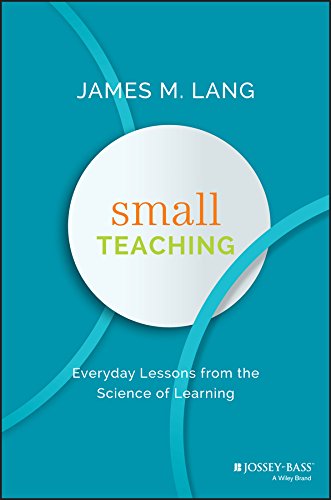Small Teaching: Everyday Lessons from the Science of Learning by James M. Lang Link to heading
Summary Link to heading
“Small Teaching: Everyday Lessons from the Science of Learning” by James M. Lang explores straightforward, practical strategies that teachers can implement in their courses to enhance learning. The book draws on research from cognitive science and the learning sciences to propose simple changes, or “small” interventions, that can have a significant impact on student engagement and learning outcomes. Lang focuses on approaches that can be implemented with minimal hassle and are adaptable to a variety of educational settings.
Review Link to heading
James M. Lang’s book is highly regarded for its accessibility and practical focus. It distills complex research into digestible suggestions that educators can immediately apply. The strength of “Small Teaching” lies in its ability to connect theoretical insights from learning science with concrete classroom practices. However, some critics might argue that the book’s emphasis on simplicity may overlook more systemic and intricate challenges in educational environments. Overall, it is praised for its actionable insights and its contribution to effective teaching practices.
Key Takeaways Link to heading
- Retrieval Practice: Regularly encourage students to recall information from memory, which strengthens retention and understanding.
- Prediction: Use activities that ask students to predict the outcome before learning new information, as this can enhance engagement and comprehension.
- Spaced Practice: Integrate spaced intervals for reviewing previous lessons to improve long-term memory retention.
- Emphasize Purpose: Clearly articulate the purpose and relevance of the material to increase student motivation and interest.
- Feedback: Provide timely and specific feedback that encourages students to correct mistakes and refine their understanding.
Recommendation Link to heading
“Small Teaching” is highly recommended for educators across various levels and disciplines who seek to improve their teaching methods with evidence-based strategies. It is particularly beneficial for those who are interested in making incremental but impactful changes to their classroom practices without overhauling their entire teaching approach. The book is ideal for teachers looking to engage students more effectively and foster deeper learning in their educational environments.
